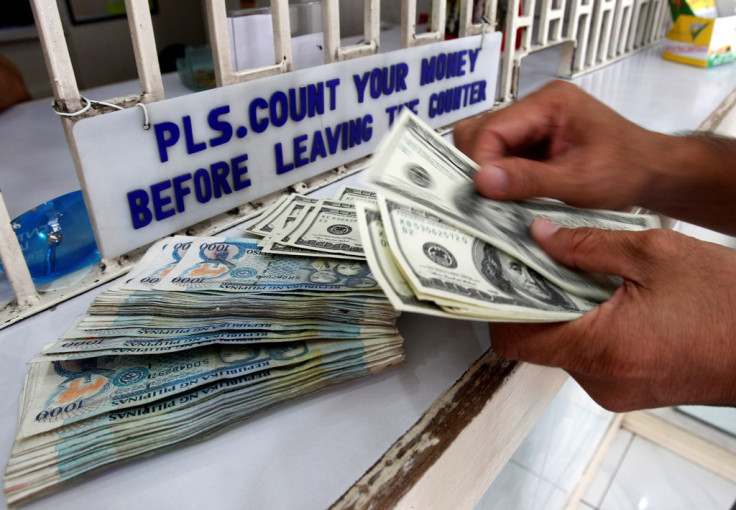Moody's upgrades Philippines rating, peso strengthens to near 3-month high

Moody's Investors Service upgraded the rating of the government of Philippines by one notch to Baa2 from Baa3 on 11 December with stable outlook, citing improved fiscal health, growth prospects and limited vulnerability to risks common for comparable peers.
The Philippines' foreign currency as well as the central bank have also been upgraded to Baa2 with stable outlook.
Philippines' peso rallied on Thursday following Moody's statement and touched its strongest since 25 September at 44.39.
Debt reduction
"The first driver of the upgrade is the decline in the Philippines' debt burden, which has coincided with structural improvements in fiscal management," Moody's said.
"Administrative reforms in the key revenue-collecting agencies have led to revenue growth in excess of nominal GDP growth for a fourth consecutive year."
According to Moody's, budget transparency has been enhanced in the Philippines, although it has temporarily weighed on public spending.
Moody's said Philippines' fiscal strength is also supplemented by an improving debt structure that mitigates currency and refinancing risks.
"The proportion of government debt denominated in foreign currency continues to fall, while the Treasury has proactively addressed refinancing risks by lengthening the average maturity of its debt to around 13 years, from about seven years as of end-2009."
Growth prospects
Philippines' private sector has maintained a relatively rapid pace of growth, Moody's said.
"In particular, the resilience of private investment portends the sustainability of higher overall growth relative to peers over the next two years," the rating agency said.
Moody's said the ongoing recovery in the US, the largest source of remittance, is supportive of household consumption in the east Asian nation while lower global commodity prices are likely to boost growth through disinflation.
However, the government has to do more if it wants to achieve the official growth target, the rating agency said.
"Although we expect the restoration of a fiscal impulse in the first half of 2015, the government's ambitious growth target may be difficult to achieve in the absence of a meaningful improvement in budget execution," Moody's said.
Less vulnerable
Philippines is more resilient to global pressures compared to its peers who face the same risks, Moody's said.
"This resilience limits the possibility that improvements in fiscal or economic performance would be significantly undermined," the rating agency said.
The Philippines is also less reliant on a slowing China, while its solid current account surplus provides a degree of resilience to shifts in global liquidity conditions in the context of the imminent normalisation of US monetary policy, Moody's said.
"Ample onshore liquidity conditions provide a stable funding base for the government, which simultaneously faces lower borrowing requirements due to narrower deficits," the agency added.
Other ceilings
Moody's has also raised the Philippines' long-term foreign currency (FC) bond ceiling to A3 from Baa1 as well as its long-term FC deposit ceiling to Baa2 from Baa3.
In addition, Moody's has raised the short-term FC deposit ceiling to P-2 from P-3, while the short-term FC bond ceiling remains at P-2.
These ceilings act as a cap on the ratings that can be assigned to the FC obligations of other entities domiciled in the country.
The Philippines' local currency bond and deposit ceilings remain unchanged at A2, Moody's said.
© Copyright IBTimes 2025. All rights reserved.






















